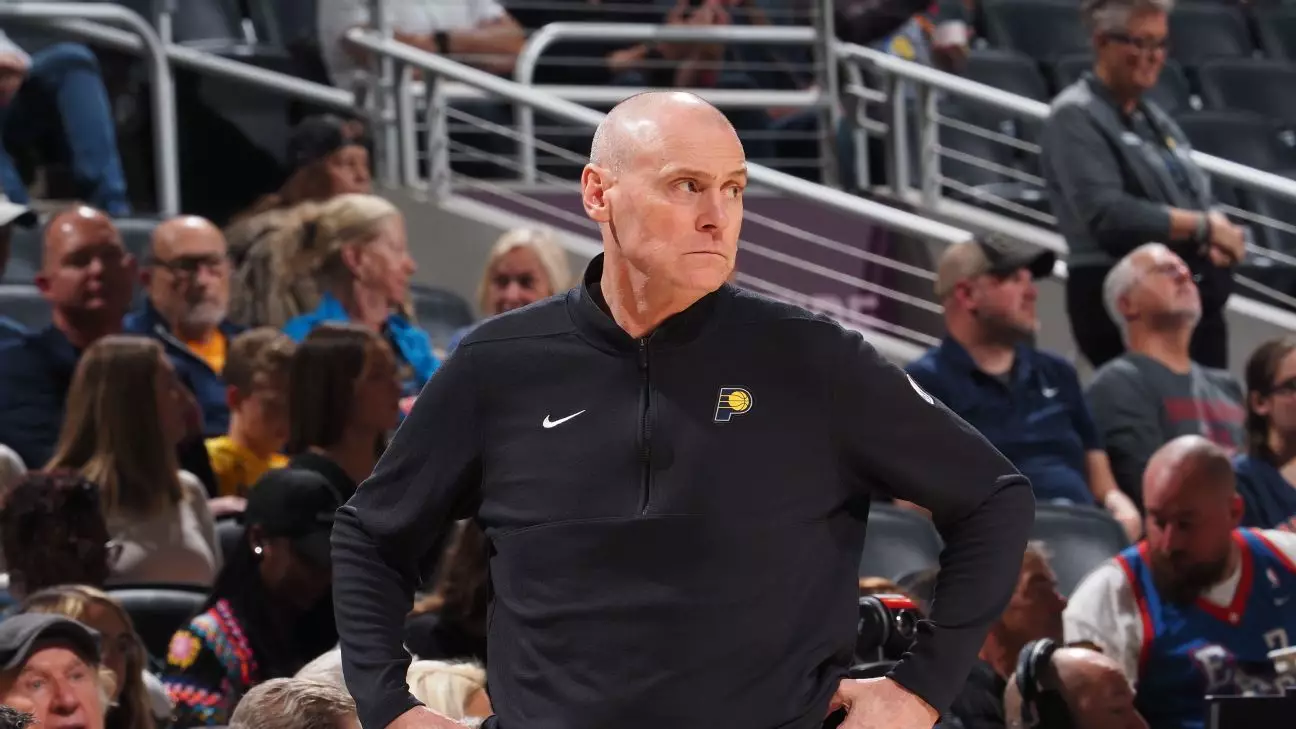The recent civil lawsuit involving Rick Carlisle, head coach of the Indiana Pacers, offers a fascinating glimpse into the complex world of sports contracts and the sometimes murky relationships between coaches and agents. The case has been officially resolved, with both parties expressing satisfaction and a forthcoming dismissal, thereby avoiding a trial that was poised to coincide with the height of the NBA playoffs in April 2025. This outcome not only alleviates the immediate legal tension but also allows Carlisle to refocus on his responsibilities within the Pacers organization.
The lawsuit, initiated by former agent Jarinn Akana in December 2023, revolved around allegations that Carlisle failed to pay the full commission owed for Akana’s negotiation of a contract extension he secured with the Dallas Mavericks in 2018. Akana claimed that Carlisle had promised a 3% commission as initially agreed upon following the untimely demise of agent Dan Fegan, who had previously represented Carlisle. However, Akana alleges that Carlisle subsequently reduced this percentage when the first payment came due, leading to claims of contractual breach.
The situation was exacerbated by Carlisle’s reported threats to alert authorities regarding Akana’s representation practices—specifically a potential violation of NBA regulations that prohibit agents from representing both players and coaches. This complexity illustrates the profoundly intricate nature of sports representation and the ethical considerations that come into play when the lines between agent and athlete blur.
Interestingly, the path to resolution was neither immediate nor straightforward. The initial mediation over the summer failed to yield an agreement, prompting the court to set a trial date. The fact that the dispute was resolved shortly after it garnered media attention—namely through an ESPN report—suggests that public scrutiny may have played a role in expediting the settlement. It highlights how media coverage can sometimes catalyze resolution in high-profile legal disputes.
Notably, the resolution and dismissal of the case allow Carlisle to maintain his focus on his team, which must be particularly reassuring given that he has led the Pacers into a promising season. His team’s performance last season, culminating in a playoff appearance, underscores the importance of stability in leadership at a time when his coaching acumen is crucial for future success.
Carlisle’s legal troubles, while resolved, have broader implications for how contracts and agent relationships are handled in professional sports. The case serves as a cautionary tale for coaches and athletes regarding the importance of clear communication and contractual adherence. The “he said, she said” nature of such disputes can quickly escalate into significant public relations headaches.
Additionally, Carlisle’s denial of the allegations reinforces a common narrative within the NBA community—coaches and players alike often find themselves enmeshed in intricate webs of contractual obligations and expectations. It can lead to conflicts that may otherwise be preventable with clear terms and open lines of communication.
Moreover, given Carlisle’s prominent standing in the league—as a former president of the National Basketball Coaches Association and one of the most successful coaches in NBA history—this incident may encourage introspection on the practices surrounding coaching contracts. Given that he ranks high on the all-time wins list, the outcome of this lawsuit could influence not just his own career trajectory but also those of others who occupy similar leadership roles in professional basketball.
With the lawsuit now behind him, Carlisle can shift his attention back to the court, where he aims to guide the Pacers to further playoff success. As he embarks on this fresh chapter, the legal entanglement serves as a reminder of the often-hidden challenges behind the scenes in professional sports. In the high-stakes environment of the NBA, where contracts are colossal and reputations are on the line, clarity, integrity, and effective mentorship relationships in agent dealings are of paramount importance.
While Carlisle’s coaching prowess remains unquestioned, the resolution of this dispute exemplifies the necessity for all stakeholders within the sports world to tread carefully, ensuring that the business side of basketball does not overshadow the passion for the game.


Leave a Reply